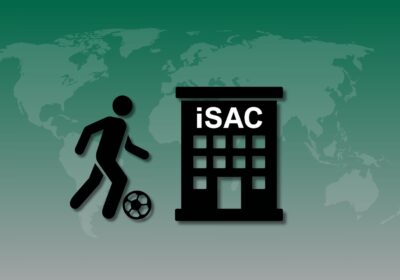The full 90-minute match that didn’t actually happen

Nine days after originally kicking off and 1,200 miles from where first touch took place, USF men’s soccer defeated Tulsa 2-1 on Monday morning at Corbett Stadium.
Except, as far as the NCAA is concerned, the two teams have not played each other this season.
The Bulls and Golden Hurricane originally kicked off at 7 p.m. CT in Tulsa on Oct. 5. USF took a 2-1 lead into halftime thanks to goals by Adrian Billhardt and Avionne Flanagan. The 2-1 lead held until the teams were pulled off the field in the 69th minute due to severe weather in the area.
About an hour into the delay, it was determined by Tulsa personnel that the match could not resume that night. Tulsa’s website initially said the match would be replayed in its entirety the next day at 10 a.m., but that quickly changed as the Bulls were unable to extend their stay in Oklahoma.
That wouldn’t have been a great solution anyway given the quick turnaround, especially considering what NCAA rules called for.
“It’s an unfortunate NCAA rule where if you cannot resume a match in the same day, you have to restart from zero on the next day or at another opportune moment,” AAC Senior Director of Sport Administration Patrick Colbert said in a phone call with The Oracle.
“It’s never advantageous, especially in a suspension of a match where you’re about two minutes away from that game being official — you’re talking about players on the field playing three-quarters of a game, and then, unfortunately, not being able to resume the same day, then you’re talking about bringing them back potentially the next day to play a 90-minute match, if not more, with the overtime situation.
“So it was a really tricky situation with all those nuances to be aware of.”
Adding to the trickiness of the situation was the fact that it became apparent a few days later that the match actually could have resumed on its original night.
“A lot of this past week was working with both institutions to collect data from several third-party data providers in terms of lightning strikes — what was in and around the area,” Colbert said. “We found a lot of commonality in that data that showed that the match could have been resumed.”
So the AAC decided to get creative once it became apparent that the full 90 minutes should have been played on the original date.
AAC Commissioner Michael Aresco, in conjunction with both USF and Tulsa administrators, contacted the NCAA and explained the bind they were in.
“We contacted the NCAA and said, ‘Listen, we’re in a bit of a tricky situation here,’” Colbert said. “‘With the understanding that NCAA rule says if you cannot resume a match the same day, you’ve got to restart it, is there anything that says if the governing body of the match,’ which in this case is us, the league, ‘Is there a situation where if we allow the match to be resumed from the 68:30 mark, give or take a few seconds, and only recognize it as a conference match for conference rankings, points in the standings, statistics only recognized by us … is that permissible?’”
The situation is exactly as unique as it sounds.
In fact, when the AAC consulted the NCAA to see if resuming a match solely for the purposes of counting toward conference play was allowed, several NCAA staff members didn’t know how to respond immediately.
“It seems like something that has never been posed to them,” Colbert said. “They huddled internally. … They want to give an answer right away to us, but it took some time to get back to us because I think they were doing their due diligence to make sure that they weren’t breaking their own rules.”
The request was ultimately approved, and considering the Golden Hurricane were in Florida over the weekend to face UCF on Saturday, it was determined late Friday afternoon that Tulsa would remain in Florida an extra few days to see the match through.
“It was a pretty quick turnaround to go ahead and say, ‘Hey, Tulsa, we need you to stay in Florida — extend your stay a little bit, drive down to Tampa, and finish the match on Monday,’” Colbert said.
The resumed match, which picked up at 10 a.m., proved to be unique in its own right. Tulsa, who needed to equalize to salvage at least a point, was entering the final 20 minutes of the game fresh when normally its players would be fatigued.
“We said it was like a hockey game,” USF coach Bob Butehorn said. “They were jumping over the boards and we were keeping guys fresh because they [Tulsa] know it was do or die for them. And for us, we knew that we had to hold a lead.”
The match should have been played to completion Oct. 5 — at least that seems to be the prevailing thought. Had USF seen the final 20 minutes out in a similar fashion to Monday, it would have come away with not just the three AAC points, but a win for its overall record.
But sometimes life isn’t fair, and that might be the biggest takeaway from the USF-Tulsa game that didn’t really happen.
“When I spoke to the guys the night of the game, I just said, ‘You guys just sit tight,’” Butehorn said. “‘You don’t say a word. You act as professionals. You rise above all the stuff that’s going on. Trust in me that we’ll get it solved, and we’ll work hard for that. But you just focus on the next game and understanding that how you represent our university is the most important.’
“So, yes, life lessons. Absolutely.”







